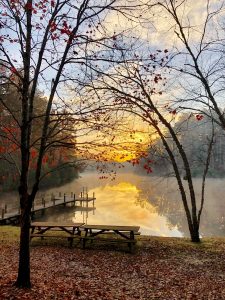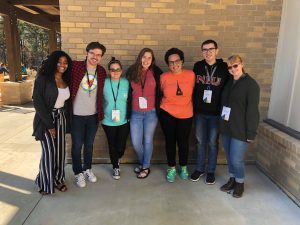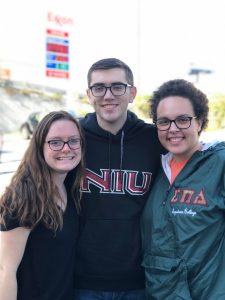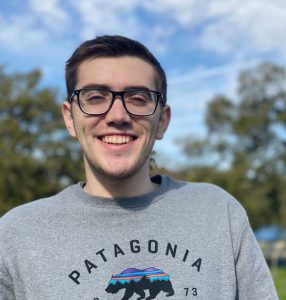The Word
“In their hearts, humans plan their course, but the Lord establishes their steps.”
-Proverbs 16:9-
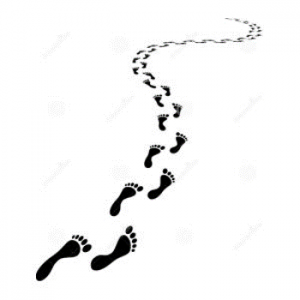
Seasons and Seasons
Lent is a season in which many strive for reflection, to make new experiences and achieve rest. It’s also a time in which we see God’s creations of nature change and show their seasonal differences. As nature’s seasons change, so do the seasons of the human life. We are deeply connected to the Creation around us. Different in the seasonal human change, unlike nature, especially Lent when all things appear new again, our bodies age. Hopefully, our minds are renewed each season to the point of maturity revealing the beauty of Godly wisdom.
Focusing on nature’s seasonal changes – identify your current season of human life. What elements of the Lent’s seasonal beauty, reflection, and shedding of old ways are on display in your current season of life? In this season of Lent, what your life’s aspiration? Are you inspired for the next season? Who are you inspiring in their season? What’s your plan and how in each season are you ordering your steps? What does this look like in terms of our communal relationship with the earth?
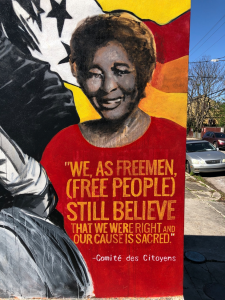
Plessy V. Ferguson Site in New Orleans, LA
Chronos and Kairos
Proverbs 16:9 reminds us that we could work and try to do everything on our time (Chronos), but the Lord provides in the Lord’s time (Kairos). Some events and opportunities that occur in winter, spring or fall may seem overwhelming and intimidating because of climate and mobility limitations. I suggest that Lent is a time where we can let go and allow God to guide our hearts to best fit into God’s plan of action. Allowing God to plan removes the obstacles of time, stress, failure and other limitations which transcend into opportunities for peace, restoration, and understanding.
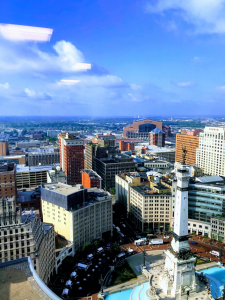
Monument Circle in Downtown Indianapolis, IN
Aspire to Inspire
Incorporating the meaning of the quote “Aspire to Inspire before you Expire” into whatever season of life in which we find ourselves, we can identify pain, the need for power, and hope for promises fulfilled.
There is recognizing the pain experienced in past seasons – the pain that has allowed you to become the person God created you to be. Then comes the pain of anticipated trauma and dilemmas that are in store and unknown. One must go through this pain to move to the next season.
The power of our testimonies changes who we are as servants. We are changed for the work of the risen Savior.
Then there’s the best part – the promise, the promise(s) fulfilled from a lifetime of holding on to God’s unchanging hand amid both chaos and celebrations.
When living out the true existentialism of this quote, we can see how only God can transform our pain into power and how God always delivers us promises within a Kairos moment.

Overview of Dallas, TX
All of this is what we could try to do before the time that we leave this season. However, this is not limited to only this season, but this journey is for a lifetime. Imagine what we could do as a powerful group of people when we serve the kingdom with the mindset to aspire to inspire before we expire.
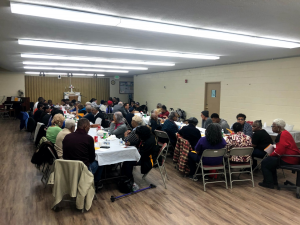
A gathering of 82 disciples representing 9 different congregations in inner city Baltimore, MD to worship for a Lent Service held at St. Philip’s in East Baltimore on March 4, 2020. To God be the Glory!
Discussion Questions
- What elements of the Lent’s seasonal beauty and newness are on display in your current season of life?
- In this season of Lent, what your life’s aspiration? Are you inspired for the next season? Who are you inspiring in their season?
- How has the Lenten fast from plastics newly inspired you? How might your next season look different because of this Lenten practice?
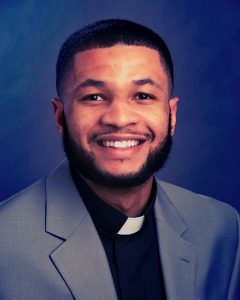 Rev. Louis Tillman is the Pastor of St. Philip’s Evangelical Lutheran Church in Baltimore. This congregation is the oldest African American Lutheran Church in North America. It was started as an African American church by a pastor who was recently freed out of slavery. St. Philip’s Evangelical Lutheran Church will be celebrating their 130th Anniversary on October 18, 2020.
Rev. Louis Tillman is the Pastor of St. Philip’s Evangelical Lutheran Church in Baltimore. This congregation is the oldest African American Lutheran Church in North America. It was started as an African American church by a pastor who was recently freed out of slavery. St. Philip’s Evangelical Lutheran Church will be celebrating their 130th Anniversary on October 18, 2020.

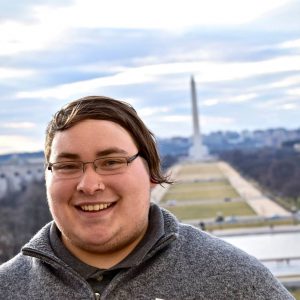 Wylie Cook (they, them, their’s) is currently a seminarian attending Pacific Lutheran Theological Seminary in Berkeley, CA. Wylie has advocacy experience in various areas but specifically, the gender and racial nuances of policy. Wylie interned at the ELCA Advocacy office in Washington, D.C. and has most recently come from working with the Lutheran World Federation’s delegation to the United Nations Climate Change negotiations in Poland. While studying to become a Lutheran pastor, Wylie engages in advocacy and activism that is rooted in and informed by Lutheran liturgy, theology, ethics, and tradition. Wylie also serves on the policy council for the Lutheran Office for Public Policy- California. In their free time, Wylie loves to travel and visit family and friends around the nation, sing in choir, and cuddle with their Miniature Pinscher, Cosmo.
Wylie Cook (they, them, their’s) is currently a seminarian attending Pacific Lutheran Theological Seminary in Berkeley, CA. Wylie has advocacy experience in various areas but specifically, the gender and racial nuances of policy. Wylie interned at the ELCA Advocacy office in Washington, D.C. and has most recently come from working with the Lutheran World Federation’s delegation to the United Nations Climate Change negotiations in Poland. While studying to become a Lutheran pastor, Wylie engages in advocacy and activism that is rooted in and informed by Lutheran liturgy, theology, ethics, and tradition. Wylie also serves on the policy council for the Lutheran Office for Public Policy- California. In their free time, Wylie loves to travel and visit family and friends around the nation, sing in choir, and cuddle with their Miniature Pinscher, Cosmo. 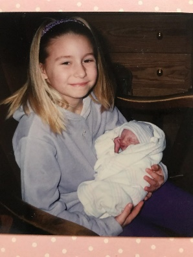 Lament was the tears at 6 years old watching my grandfather baptize my sister in the hospital because we knew she wouldn’t live long enough to see anything outside of that building.
Lament was the tears at 6 years old watching my grandfather baptize my sister in the hospital because we knew she wouldn’t live long enough to see anything outside of that building.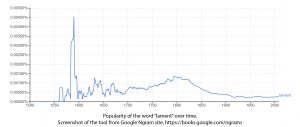
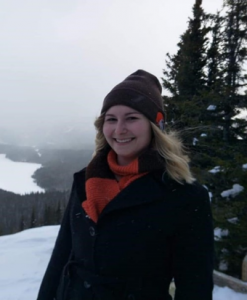 Tessa Comnick is serving in Washington D.C. as the Hunger Advocacy Fellow with
Tessa Comnick is serving in Washington D.C. as the Hunger Advocacy Fellow with 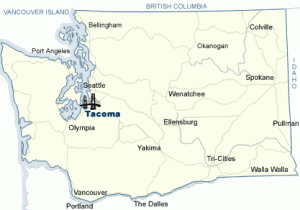
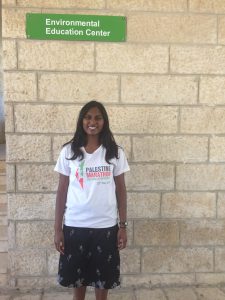
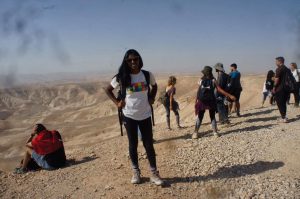
 Hannah Wright Osborn (She/Her/Hers) is a living Lutheran currently residing in the DC Metro Synod where faith and politics are ever present. Her studies in college helped her to understand the value of the farm she grew up on and the recycling of second-hand products. Her year in Palestine further fueled her passion for social justice work. She came back and was invited to lead a trip back to Palestine for other Young Adults of Color near and within the church and to give them space to lead in a white and marginalized society. She has returned back after a successful trip in January 2020 and continues social justice work in her local community through Luther Place Memorial Church.
Hannah Wright Osborn (She/Her/Hers) is a living Lutheran currently residing in the DC Metro Synod where faith and politics are ever present. Her studies in college helped her to understand the value of the farm she grew up on and the recycling of second-hand products. Her year in Palestine further fueled her passion for social justice work. She came back and was invited to lead a trip back to Palestine for other Young Adults of Color near and within the church and to give them space to lead in a white and marginalized society. She has returned back after a successful trip in January 2020 and continues social justice work in her local community through Luther Place Memorial Church.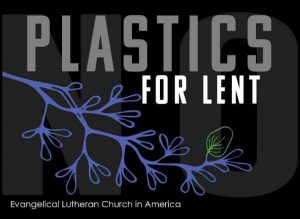
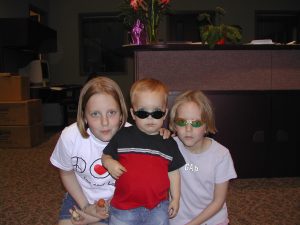
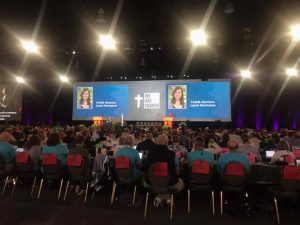
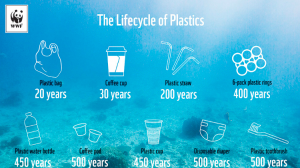
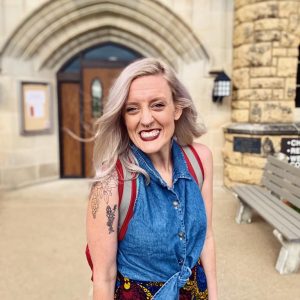 Savanna Sullivan (she/her/hers) serves as the Program Director for ELCA Young Adult Ministries at the ELCA Churchwide Office in Chicago, IL. She was a main stage speaker at the 2018 ELCA Youth Gathering in Houston, TX and gives presentations around the country to ELCA and ecumenical groups about Young Adult culture and empowerment in the church. She is passionate about helping young people seek the Divine in themselves and pushing the church to equip, amplify, and respect the voices of young leaders. She loves banana pudding, the Clemson tigers, and memorizing poems.
Savanna Sullivan (she/her/hers) serves as the Program Director for ELCA Young Adult Ministries at the ELCA Churchwide Office in Chicago, IL. She was a main stage speaker at the 2018 ELCA Youth Gathering in Houston, TX and gives presentations around the country to ELCA and ecumenical groups about Young Adult culture and empowerment in the church. She is passionate about helping young people seek the Divine in themselves and pushing the church to equip, amplify, and respect the voices of young leaders. She loves banana pudding, the Clemson tigers, and memorizing poems.